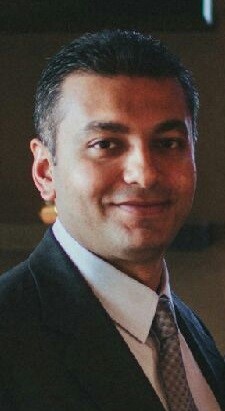
- This event has passed.
MSE Seminar: “Advanced Analytical Characterization of Next Generation Energy Storage Systems” – Nik Singh – Toyota Research Institute of North America
October 26, 2023 at 10:30 AM - 12:00 PM
Advances in hybrid and electric vehicle technologies combined with a demand for green initiatives have recently motivated necessary diversification in energy storage research. To achieve customer expectations for hybrid and electric vehicles, new battery systems with higher energy densities, power densities and cycle life than the current state-of-art Lithium (Li)-ion battery are needed. Further, to achieve necessary standards for green initiatives for hybrid and electric vehicles, a closer examination of the processes and materials involved in battery systems is also critical. Examples of such Li-ion battery systems are those focused on the utilization of Silicon (Si) or Li metal as the anode, or the use of low-Cobalt (Co) or Co-free cathodes, or the move towards closed-loop battery ecosystems. However, the development of such systems is complicated at the fundamental level by process-driven impurities and chemical incompatibilities in current liquid battery systems.
Among additional strategies under consideration for energy storage diversification, the use of solid-state electrolytes (inclusive of polymers, gels and conducting ceramics) stands out since the implementation of solid-state electrolytes can also serve as a mechanical barrier towards Li dendrite formation (and hence potentially subdue thermal runaway events). However, solid-state electrolytes exhibit lower ionic conductivities and display poor interfacial stability towards higher energy Li metal anodes. While optimizations to overcome such intrinsic challenges in both liquid and solid-state battery materials continue, even less is known about the interfacial interactions between both types of electrolytes and anodes/cathodes. Since battery system interfaces eventually govern the performance of the battery, studies into understanding these interactions remains essential. Here, we present an overview of select studies undertaken for the interfacial interactions between various liquid and solid electrolytes under consideration for metal battery systems today. The studies cover interfacial observations, nucleation and growth of the metal anode and the chemo-mechanical transformations within electrolytes, and at their interfaces with metal anode materials. Tandem analytical ex-situ and in-situ studies via transmission electron microcopy (TEM) and X-ray absorption spectroscopy (XAS) can reveal the interfacial interactions and failure modes between metal anodes and commonly used liquid and solid battery electrolytes. The presented studies allow for comparisons of metal anode properties for each electrolyte material and stand to help clarify interfacial, morphological and failure evolution mechanisms during battery cycling from them. Further, we present the need for bridging length scales across multiple analytical techniques when analyzing energy storage system materials, to be able to better correlate model studies and commercial products.

Nikhilendra (Nik) Singh
Senior Scientist, Materials Research, Toyota Research Institute of North America
Nikhilendra (Nik) Singh is a Senior Scientist in the Materials Research Department at the Toyota Research Institute of North America. In his current role, he is part of a group which researches post-lithium-ion battery systems and their applications to future mobility. In specific, his research currently covers sectors in solid-state batteries and liquid batteries beyond traditional lithium-ion chemistries commercially available today. Nik joined Toyota in 2011 as a contracted researcher and moved to team member in 2013. In this time, he has contributed towards more than twenty issued patents and eighteen peer-reviewed scientific publications. Prior to working at Toyota, Nik received his Bachelor of Science in Chemistry and Environmental Science from Muskingum University and his Doctorate in Chemistry from Purdue University.
